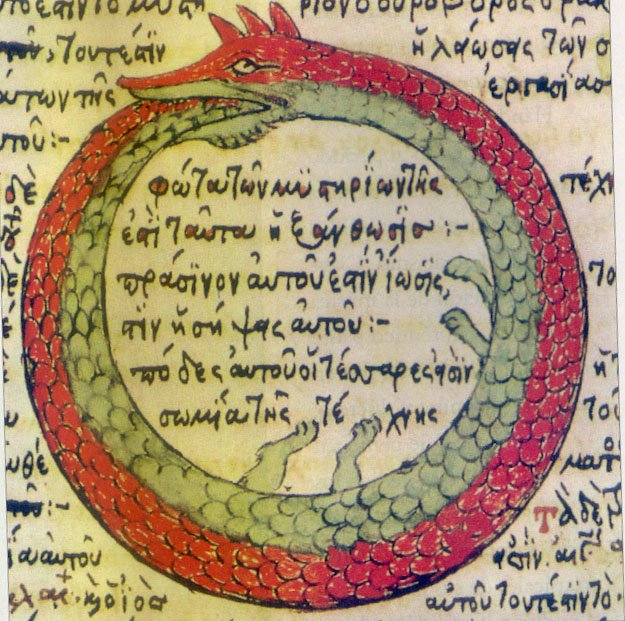The Eternal Recurrence Of Time

The ouroboro is an ancient alchemical symbol representing a serpent eating its own tail as a symbol for life constantly recreating itself.
The concept of eternal recurrence can be found throughout different philosophies and religions, most famously, Nietzsche entertained this theory in his works The Gay Science and Thus Spoke Zarathustra. He announced this concept by asking a question to his readers:
What if some day or night a demon were to sneak after you in your loneliness and say to you: “This life as you now live it and have lived it, you will have to live once more and innumerable times more; and there will be nothing new in it, but every pain and every joy and every thought and sigh and everything immeasurably small or great in your life must return to you, all in the same succession and sequence—even this spider and this moonlight between the trees, and even this moment and I myself. The eternal hourglass of existence is turned over and over, and you with it, a speck of dust.” Would you not throw yourself down and gnash your teeth and curse the demon who spoke thus? Or did you once experience a tremendous moment when you would have answered him: “You are a god, and never have I heard anything more godly.” If this thought were to gain possession of you, it would change you, as you are, or perhaps crush you. The question in each and every thing, “Do you want this again and innumerable times again?” would weigh upon your actions as the greatest weight. Or how well disposed would you have to become to yourself and to life to desire nothing more than this ultimate eternal confirmation and seal?”
Nietzsche did not intend for the idea of eternal recurrence to be literally true, instead, he posits it to his readers as a mere thought experiment. What would a person's reaction be when asked to repeat their lives again and again? Would he recoil in despair or would he joyously accept when confronted with the possibility of endlessly reliving his experiences?
Through the character of Zarathustra, Nietzsche envisions the consequences of life constantly repeating itself. He believed it to be the ultimate test of life-affirmation: by answering positively to the demon, the individual would accept to live through all experiences believed to be meaningless and regretful, forever. However grim this outcome could look like, he thought that by completely accepting his adversities, the individual could find meaning in his conflict against them.
That's a great piece of writing, it really made me think about life and what it means to be here.
Thank you perrocaca, I'm glad you found my post thought-provoking.
Congratulations @hornet! You have completed some achievement on Steemit and have been rewarded with new badge(s) :
Click on any badge to view your own Board of Honnor on SteemitBoard.
For more information about SteemitBoard, click here
If you no longer want to receive notifications, reply to this comment with the word
STOPBy upvoting this notification, you can help all Steemit users. Learn how here!